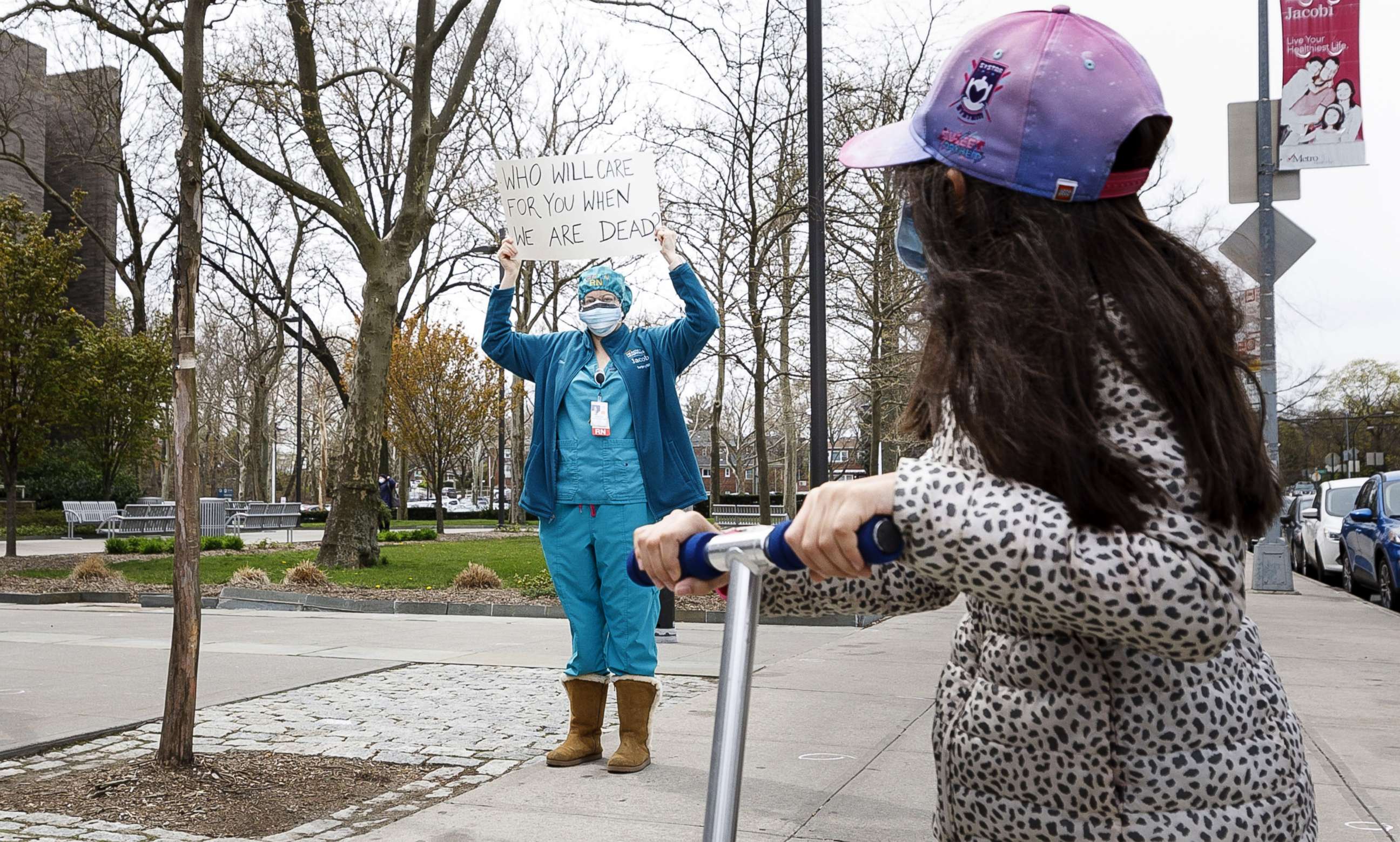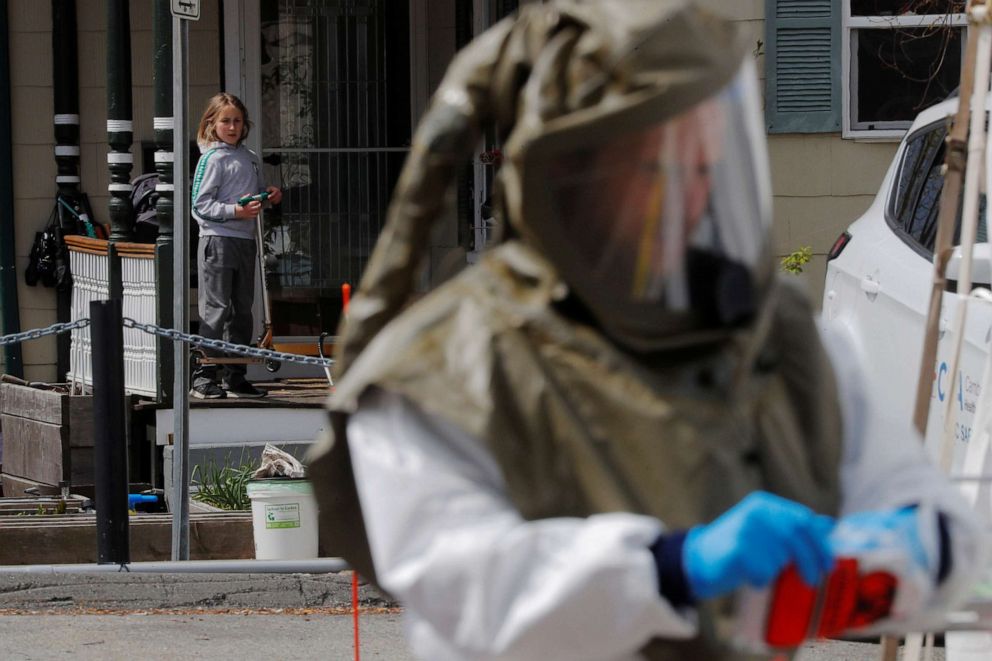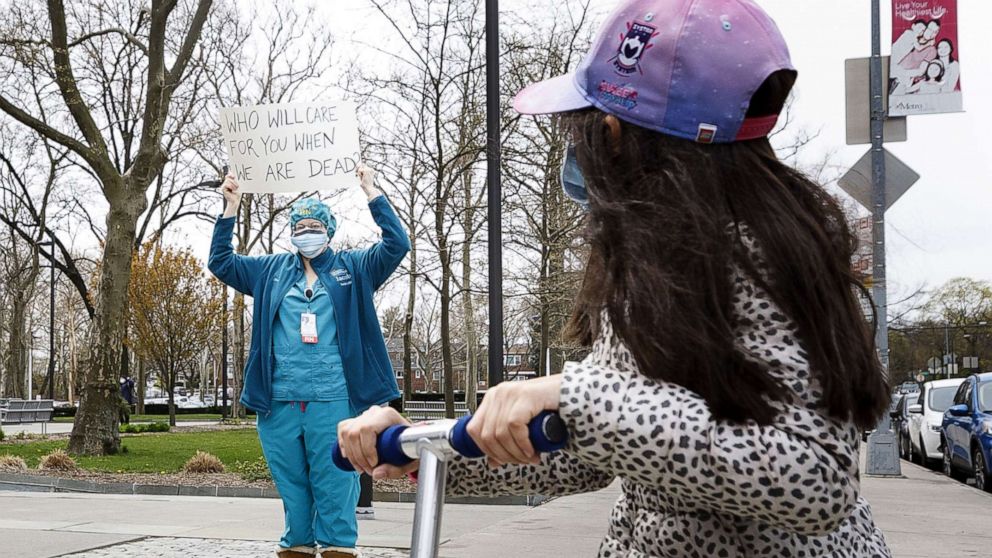How school closures put children at risk
A study from China released on Friday has found that school closures and social distancing guidelines led to an uptick in mental health problems among school-aged children.
Published in JAMA Pediatrics, the research showed 23% of children in Wuhan experienced symptoms of depression and 19% reported anxiety.
In the United States, many schools will be closed for the rest of the academic year due to the coronavirus pandemic, prompting experts to warn how that could lead to detrimental mental health consequences in students and an increase in child abuse.

The disruption of essential services students receive outside of education, such as free or subsidized meals, have been addressed in many places with curbside grab-and-go meals for students. Ensuring food security has been a common part of school closure plans.
What to know about the coronavirus:
- How it started and how to protect yourself: Coronavirus explained
- What to do if you have symptoms: Coronavirus symptoms
- Tracking the spread in the U.S. and worldwide: Coronavirus map
Tune into ABC at 1 p.m. ET and ABC News Live at 4 p.m. ET every weekday for special coverage of the novel coronavirus with the full ABC News team, including the latest news, context and analysis.
But other, tougher-to-replicate services, such as physical and mental health services, are equally essential to children's health. The Center for Health and Health Care has reported that in students with mental illness, 70% to 80% receive that care in a school setting.
Adolescents in racial and ethnic minority groups, with lower family income or in families with a lack of health insurance are more likely to depend on mental health resources at school, according to researchers from the Substance Abuse and Mental Health Services Administration.
The most vulnerable of students are special needs children, such as those with autism spectrum disorder, attention deficit disorder or developmental delays. Specialized schools have been an anchor for these students and their families.
For children with mental illness, maintaining a routine is a critical aspect of their well-being, and disruptions to routines can be destabilizing, Dr. Neha Chaudhary, child and adolescent psychiatrist at Harvard Medical School and Massachusetts General Hospital, told ABC News.
"Routines can be like swaddles for the mind, keeping thoughts and anxieties contained so that they don't spin and grow," she said.
Disruption of day-to-day routine can exacerbate psychological symptoms.

"The uncertainty of not knowing what's happening or what will come next can lead to escalating negative thoughts, potentially heightening the effects of these disorders," Chaudhary added. "Kids need stability, consistency and for their environments to tell them what comes next -- and routines give them just that."
In addition, social isolation can prove dangerous for children in an abusive home, with abuse likely exacerbated during this time of increased economic uncertainty and stress.
A rise in child abuse cases has previously been reported during public health emergencies, such as the Ebola outbreak in West Africa from 2014 to 2016, researchers found.
The United Nations International Child Emergency Fund predicted that actions taken to contain spread of COVID-19 will cause millions of children across the world to face threats to their safety, including mistreatment, gender-based violence and exploitation.
With the closure of schools and after-school programs, teachers, coaches and other school employees won't be seeing children as often and signs of potential abuse may be significantly underreported.
For victims of child abuse, the Child Help 24-hour hotline is 1-800-4-A-CHILD or 1-800-422-4453.
Additional resources:
Yalda Safai M.D., M.P.H., a psychiatry resident in New York City, is a contributor to ABC News Medical Unit.




